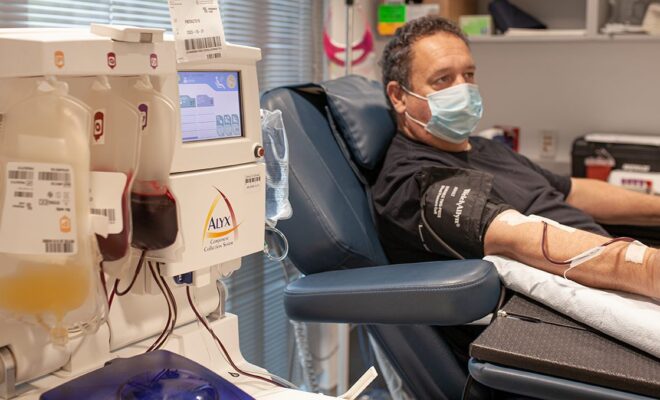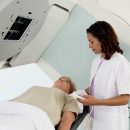Transform Lives And Earn Extra Cash: Donate Plasma In Utah

Key Takeaways:
- Donating plasma in Utah can make a significant difference in people’s lives.
- Plasma donations help advance medical research and improve treatments.
- Donating plasma in Utah offers financial benefits and rewards programs.
- Before donating, undergo eligibility screening and a physical examination.
- The plasma donation process takes around 1-2 hours.
- Stay hydrated and well-fed before and after donation.
- Choose a reputable plasma donation center with strict safety protocols.
- Consider compensation rates and rewards programs, but prioritize safety.
- Donating plasma is generally safe with temporary side effects like dizziness.
- Donation frequency depends on the center and individual factors.
- Communicate any discomfort or concerns to the donation center staff.
Why Donate Plasma in Utah?
Donating plasma Utah is a uniquely impactful way to make a difference in people’s lives. Plasma, the liquid part of our blood, contains vital proteins and antibodies that are used to create life-saving therapies for individuals with various medical conditions. By donating plasma in Utah, you can directly contribute to these efforts and help improve the lives of countless individuals.
1. Making a Difference in People’s Lives
When you donate plasma in Utah, you are playing a pivotal role in providing essential treatments for individuals with conditions such as bleeding disorders, immune deficiencies, and other life-threatening illnesses. Plasma-derived therapies, including immunoglobulins and clotting factors, have transformed the lives of patients worldwide.
By donating plasma, you are helping to ensure a steady supply of these life-saving treatments. For patients who rely on plasma-based therapies, your donation can mean the difference between life and death. The impact of your contribution cannot be overstated.
2. Helping to Advance Medical Research
Plasma donations also play a crucial role in advancing medical research. Scientists and researchers use donated plasma to develop new treatments, study diseases, and improve medical techniques.
With your donation in Utah, you are directly contributing to ongoing research efforts that aim to find cures for diseases, improve existing treatments, and discover innovative approaches to healthcare. Through research, plasma donations have the potential to save even more lives in the future.
3. Financial Benefits of Donating Plasma
Aside from the significant impact on others, donating plasma in Utah also offers financial benefits. Plasma donation centers typically provide compensation for your time and effort. While the exact amount varies depending on the center and location, many donors find the financial compensation to be a helpful supplemental income.
Additionally, some plasma donation centers offer rewards programs or loyalty bonuses for regular donors. These programs can provide additional financial incentives and make the donation experience even more rewarding.
The Plasma Donation Process
1. Eligibility and Screening
Before donating plasma in Utah, you’ll need to meet certain eligibility criteria and undergo a screening process. Eligibility requirements often include being in good health, being at least 18 years old, and weighing a minimum amount.
The screening process involves a detailed questionnaire and physical examination to ensure your overall health and eligibility to donate plasma. This step aims to protect both your well-being and the safety of the recipients who will receive plasma-based therapies.
2. Donating Plasma: What to Expect
Once you’ve passed the eligibility screening and are ready to donate plasma, you’ll be guided through the donation process by trained professionals. The procedure itself takes approximately 1-2 hours from start to finish.
During the donation, a small portion of your blood will be drawn, and the plasma will be separated through a process called plasmapheresis. The remaining components of your blood, such as red blood cells and platelets, will be returned to your body.
The plasmapheresis process is safe, and you’ll be closely monitored throughout to ensure your comfort and well-being. After the donation, you may experience temporary side effects such as dizziness or fatigue, but these typically resolve quickly.
3. Tips for a Successful Plasma Donation
To have a successful plasma donation experience, it’s important to follow a few guidelines:
- Stay well-hydrated before and after your donation.
- Eat a healthy meal before your donation to maintain your energy levels.
- Avoid strenuous physical activity immediately before or after the donation.
- Bring a form of identification and any required documentation to streamline the check-in process.
By following these tips, you can ensure a smooth and successful plasma donation experience while maximizing the impact of your donation.
Finding the Right Plasma Donation Center
1. Researching Utah’s Plasma Donation Centers
When searching for a plasma donation center in Utah, it’s important to do thorough research. Look for centers that have a positive reputation, a strong track record in delivering safe and reliable plasma donation services, and are conveniently located for you.
Read reviews and testimonials from other donors to get insights into their experiences. Consider factors such as the center’s cleanliness, efficiency, staff professionalism, and overall donor satisfaction. Choosing a reputable center ensures that your donation will have the maximum impact and that you’ll have a positive experience throughout the process.
2. Evaluating Safety and Hygiene Standards
Safety and hygiene should be top concerns when selecting a plasma donation center. Ensure that the center follows strict protocols and regulations set by relevant health authorities to guarantee the utmost safety for both donors and recipients.
Some key things to look for include proper sanitization measures, sterile equipment and supplies, and a strong focus on donor screening and safety. Additionally, inquire about any certifications or accreditations that the center may have, indicating their commitment to maintaining high standards of quality and safety.
3. Considering Compensation and Rewards Programs
While compensation should not be the sole factor in choosing a plasma donation center, it is certainly an important consideration. Take the time to compare the compensation rates offered by different centers. Some centers may offer higher rates or additional rewards programs for loyal donors.
However, it’s crucial to strike a balance between compensation and the center’s reputation for safety and quality. Always prioritize the well-being of both yourself and the recipients who will rely on the plasma you donate.
Plasma Donation FAQs
1. Is Donating Plasma Safe?
Yes, donating plasma is considered safe when done at reputable donation centers that follow strict safety protocols. The donation process is conducted by trained professionals who prioritize your well-being. Temporary side effects may occur, but they typically resolve quickly, and serious complications are extremely rare.
2. How Often Can I Donate Plasma?
The frequency at which you can donate plasma varies depending on the center and individual factors such as your health and donation history. Most centers allow donors to donate plasma at least once every 28 days, with some possible variations. It’s important to follow the guidelines provided by your chosen plasma donation center.
3. What Are the Potential Side Effects of Donating Plasma?
While donating plasma is generally safe, some individuals may experience temporary side effects such as dizziness, fatigue, or lightheadedness. These side effects are usually mild and resolve quickly. It’s important to communicate any discomfort or concerns with the donation center staff to ensure appropriate care and assistance if needed.
Overall, donating plasma in Utah is a powerful way to make a significant impact on people’s lives, contribute to medical research, and earn extra cash. By finding the right plasma donation center and following the donation process carefully, you can become part of a network of donors who are dedicated to saving lives and improving healthcare outcomes.
FAQ
Question: Why should I donate plasma in Utah? – Donating plasma in Utah can make a significant difference in people’s lives by providing essential treatments for bleeding disorders, immune deficiencies, and other life-threatening illnesses. Your donation can mean the difference between life and death for patients who rely on plasma-based therapies.
Question: How does plasma donation help advance medical research? – Plasma donations are used by scientists and researchers to develop new treatments, study diseases, and improve medical techniques. By donating plasma, you are directly contributing to ongoing research efforts that aim to find cures for diseases, improve existing treatments, and discover innovative approaches to healthcare.
Question: What are the financial benefits of donating plasma in Utah? – Donating plasma in Utah offers financial benefits as most plasma donation centers provide compensation for your time and effort. Additionally, some centers offer rewards programs or loyalty bonuses for regular donors, providing additional financial incentives.
Question: What is the eligibility and screening process for donating plasma? – Before donating plasma in Utah, you’ll need to meet certain eligibility criteria such as being in good health, at least 18 years old, and weighing a minimum amount. The screening process involves a detailed questionnaire and physical examination to ensure your overall health and eligibility to donate plasma.
Question: What can I expect during the plasma donation process? – The plasma donation process takes approximately 1-2 hours. During the donation, a small portion of your blood will be drawn, and the plasma will be separated through a process called plasmapheresis. The remaining components of your blood will be returned to your body. After the donation, you may experience temporary side effects such as dizziness or fatigue, but these typically resolve quickly.
Question: How can I have a successful plasma donation? – To have a successful plasma donation experience, it’s important to stay well-hydrated before and after your donation, eat a healthy meal before your donation, avoid strenuous physical activity immediately before or after the donation, and bring a form of identification and any required documentation to streamline the check-in process.
Question: How do I find the right plasma donation center in Utah? – When researching plasma donation centers in Utah, it’s important to look for centers with a positive reputation, strong safety protocols, and convenient locations. Read reviews and testimonials from other donors to get insights into their experiences. Choose a reputable center that prioritizes safety and quality.
Question: Is donating plasma safe? – Yes, donating plasma is considered safe when done at reputable donation centers that follow strict safety protocols. The donation process is conducted by trained professionals who prioritize your well-being. Temporary side effects such as dizziness or fatigue may occur but are usually mild and resolve quickly.





